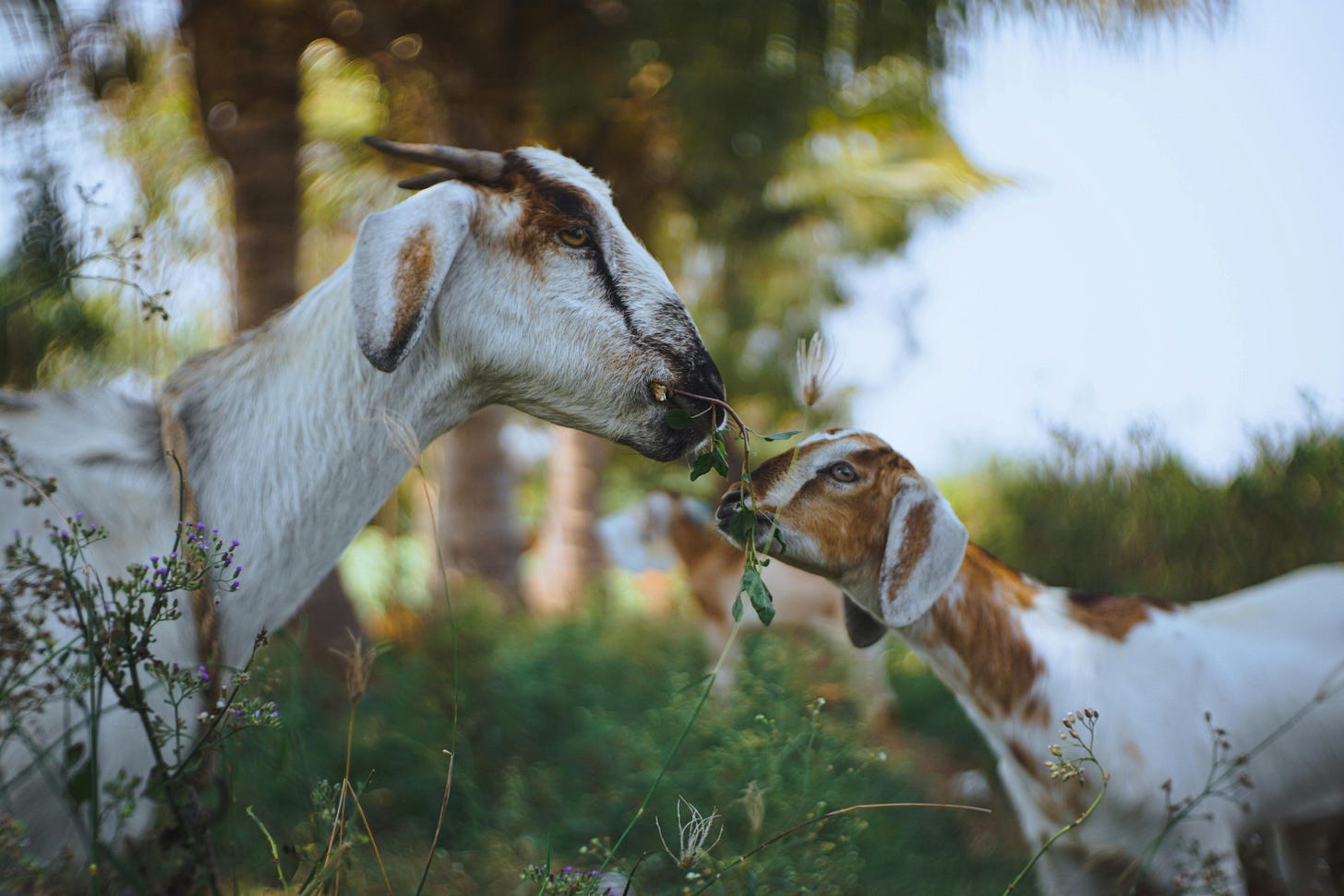You are receiving this because you have subscribed to Daniel Firth Griffith’s, or Robinia Institute’s, or The Wildland’s email newsletter or Substack, which are, today, one and the same. Welcome!
If you enjoy this content, if you find it meaningful to you, we encourage you to become a paid member for $3/mo! With a paid subscription, you get access to all of my four of my previously published and award-winning books (digital and audiobook versions) and so, so much more! It may be a cup of coffee for you, but it is the nourishment that keeps up alive, and we are so very thankful!
This chapter of Stagtine, my latest book that we are dripping here on The Wildland Chronicles, is provided for all PAID members.
To view a full (slowly released) Table of Contents to Stagtine, my latest book made available to you all in both paperback, digital, and audiobook formats, click here!
You can also purchase all the versions of Stagtine on Amazon.
To read the previous chapter:
Mara, matriarch of the goats, had three sons. One afternoon, as often happens with those in need, she escaped her limits and dwelt in the dark woods. She returned after two sennights to speak with us. We listened.
A light cleaving the clouds harkened upon an oak tree. Its branches spilled silvery dew upon the ruddy backs of a herd of goats, themselves lost in a breakfast of oak leaves and oak nuts. Light, water, and attention falling downwards, a moderated melody, a ballast of the belly.
Behind, the hill rose slightly and found a deep browning bed of this year’s grasses. Goldenrods, fleabane, and the geometric master boneset held pinnate against time and remained tall, their once great, summer flowers slowly rusting into reproduction. Beyond, a thicket of greying forest, young and new, scurried up a steep bank, charging the cedar phalanx planted atop the next ridge. Some ancient battle repeating itself, some ancient feud awakening every night, the cedars winning. The hill is never taken.
It was here, under the oak tree and upon a forgotten meadow where a row of spring poppies used to grow that the goats decided to stop and pass the afternoon. Atop the oak a lone lark threw threads of many colors, germinating the last of summer’s song into the air. The goats stayed at it for some time and after a few mouthfuls of some smoked jerky that I carried with me, I settled down myself into the meadow’s grasses, closing my eyes. I awoke to the late sun. She was steadily sliding down the eastern forest, skiing rays of distant, orange light upon their grey trunks. They were nursing their wounds from this morning’s charge up the hill. They had lost many good trees. The cedars had turned them back, routing a fine defense.
“The sun is medicine. Right Dad?” Weymouth, our second child often asks as he rips his shirt off, exposing his oak pulp stained and sapling thin frame.
“Medicine, that is right.”
The surgeon’s tent, the meadow’s medicine—the sun healing feuds and their forests, I thought, rubbing my eyes clean of sleep.
My face flushed with sunburn and wind. I checked for the goats. They were still foraging under the oak.
. . .
We crept down into a shallow and flat river valley, trampled by time, crushed by charging trees, or smoothed by some great current, we did not know. The water flowed gently and the goats lapped in turns. They approached the river as a child approaches fire, drawn indelibly but slow, remembering the pain and progressing limpness of the startled cottonmouth. Time tested muscles tensed and their hooves moved unhurriedly. Their latitudinal eyes scythed through the shrubbery and pierced east and west and then east again. Their horns spiked shields above them. A coyote hunting pack or a meandering black bear sow may lay just downstream.
Or maybe not but who is to know? The rash are dead in reckless graves and so we cannot ask them.
Keep reading with a 7-day free trial
Subscribe to Unshod to keep reading this post and get 7 days of free access to the full post archives.



